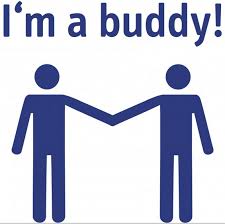 It’s not a question we are often asked, and we almost never ask that of ourselves. But it is a worthwhile exercise, particularly when you feel stressed by your job and the world. As Socrates is attributed to have said, “The unexamined life is not worth living,”
It’s not a question we are often asked, and we almost never ask that of ourselves. But it is a worthwhile exercise, particularly when you feel stressed by your job and the world. As Socrates is attributed to have said, “The unexamined life is not worth living,”
In my own case, I became a librarian because I needed a job, and it was available. I was graduating from college and getting married. I needed to know where I would be working so my future husband and I could find a place to live. The superintendent of schools who interviewed me was desperate to find a librarian. I had worked as a page in the public library for two years, and I could get an emergency certificate attached to my new teaching license.
Not a very good reason for becoming a librarian, but despite being terrible at the job, I realized I truly liked it. So I continued going for my masters even when I was justifiably not rehired at the end of the year. I found another job as a librarian and began to get better at what I was doing.
 After taking several years off to raise my children, I looked for another library position as soon as they were ready to go to school. Although I had trained to be a high school teacher and my first jobs were at that level, I was happy to find something in a brand new elementary school. The school was unusual and it gave me a new “why” for being a librarian.
After taking several years off to raise my children, I looked for another library position as soon as they were ready to go to school. Although I had trained to be a high school teacher and my first jobs were at that level, I was happy to find something in a brand new elementary school. The school was unusual and it gave me a new “why” for being a librarian.
As an elementary level novice, I learned from the teachers. And that is how my next “why” came to be. I discovered how being open to what teachers could show me made them willing to learn what I show them. The collegial atmosphere bred collaboration. I was a librarian because I could help teachers do a better job.
My professional growth continued when I decided to go back to school for additional graduate courses. Because I was going for a Supervisor certificate I met librarians who were looking to become leaders. I also met Ruth Toor, and as a result of the course, we wrote our first book, The Elementary School Librarian’s Almanac.
My career continued and my ‘whys” evolved. The reactions of my students to the help I offered made me realize they were a central reason for why I was a librarian. The better I got at my job, the more they appreciated what I could teach them.
I am extremely active in ALA/AASL and this too has affected my “why.” I am a librarian so I can be a resource to other librarians. I do so through mentoring, the books I write and the workshops I give. But we are all resources for our colleagues. 
I also now recognize that I wasn’t aware of another “why” when I was working in schools. By my interactions with students, teachers, and administrators I was making a significant contribution to the whole school community.
My experiences and the research has led me to in essence share why I am a librarian with just about everyone I meet. Whenever I can, I let them know the value of school librarians. And even though I no longer work in a school library, I am still a librarian. And I know why.
Yes, your “why” will change over time. It will continue to change if you are open to the possibility. When the “whys” are positive you become even better at what you do.
What are your “whys” and how have they changed?


















